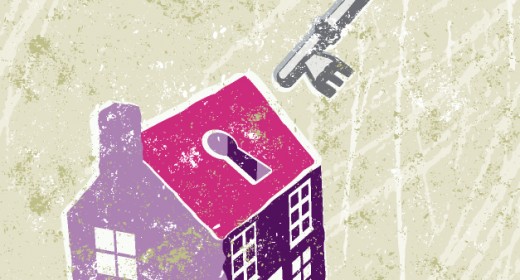Whether you own the freehold or the leasehold will affect your role as flat owner at your property.
The two main distinctions between owning the freehold and being the leaseholder is control and responsibility, both of which are afforded to the former.
Making the step from leaseholder to freeholder is an appealing option affording you management control and/or protecting the value of a short lease and it can be cheaper than you think – but there are considerations to take into account.
Let’s begin with the basics
- Leaseholder: you own the right to occupy the flat for the length of the lease
- Freeholder: you are sole owner of both the building and the land it stands on
- Since 1993, flat owners have had the right to buy the freehold or extend their lease (Buying a freehold depends on a set of qualifying criteria, and there are some exceptions which can stop you from qualifying.) For a lease extension you must have owned for 2 years, for buying the freehold collectively there is no such time limit.
Whole houses are usually freehold. Flats on the other hand are usually leasehold: buyers have the right to live there for the length of a lease, but someone else owns the building and land. As a leaseholder, you will need to pay service charges and fees to the freeholder, including a ground rent.
Flat Owners – Lease Extensions Vs Buying Your Freehold Share on XIf you live in a building with other flat owners, you can get together and collectively enfranchise (i.e. buy the freehold)
The process involves:
- Checking flat owners and building eligibility
- Organizing the enfranchisement
- Forming a company
- Obtaining Specialist Valuation advice
- Serving an initial notice on the landlord via your solicitor
- Preparing for subsequent procedures.
Depending on the terms of your lease and the number of participating flat owners in the enfranchisement, buying the freehold can be around the same price as extending the lease. There are some restrictions on eligibility and some buildings are exempt altogether – seek professional advice to discuss if you’re property is eligible.

Pros and cons of flat owners buying their freehold
PRO Control: you will have free reign on how to manage the property and land
PRO You will no longer need to pay ground rent
PRO Depending on the term of your lease and the number of eligible tenants in the enfranchisement, buying the freehold can be around the same price as extending your lease.
PRO Eliminate landlord disputes
PRO Insure the building with a company of your choice
PRO Schedule works and maintenance as you wish
PRO Increase the value of your flat
PRO Protect the value of your flat from a diminishing lease
CON You will be responsible to any flat owners who are leaseholders at the property in carrying out service charges, such as maintenance and repair as they are part of your role as freeholder albeit this can be handed over to a Managing Agent.
I’m not the freeholder, so why should I be bothered about extending the lease?
If the lease on your property is short, but you don’t want to buy the freehold you will need to act to extend the lease before it drops below say 85 years. Why is this important?
As the lease length reduces, a lease extension will become more expensive, saleability will be effected and selling or obtaining a mortgage will become more difficult. If you qualify and have served the correct notice, your freeholder must grant a lease extension for an additional 90 years at nil ground rent.
–RIGHTMOVE

